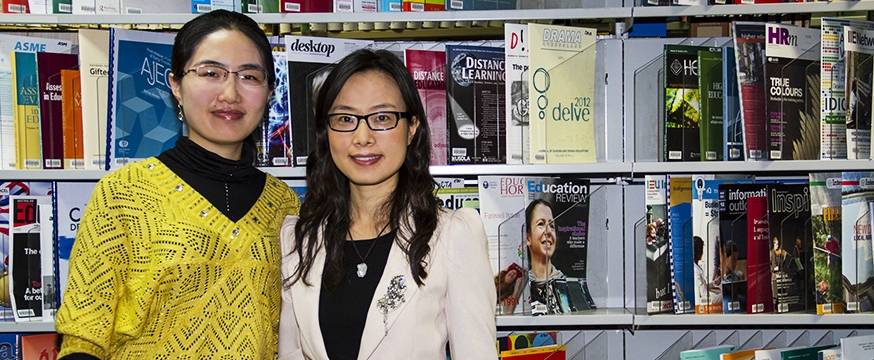
Improving learning in China
Research 20 Nov 2013 4 minute readResearch cooperation between Australia and China is providing insights into educational practices for researchers in both countries.
ACER and the National Institute of Education Sciences (NIES), Beijing, China, have signed a memorandum of understanding to share research, information and expertise.
The agreement paves the way for collaboration in programs and initiatives that apply international best practices in educational research and assessment to support educational development.
The research arm of the Chinese Ministry of Education, NIES is the only national-level comprehensive educational research institute in China. Its 11 research centres investigate all educational sectors from preschool education through to higher education in terms of education policy, curriculum and pedagogy, teacher development, education inspection and evaluation, psychology and special education, and international and comparative education.
Among the areas of cooperation facilitated by the agreement is the secondment of staff between ACER and NIES. ACER recently hosted two NIES researchers, Li Nan and Dr Hong Su for a period of 3 and 5 months respectively.
Dr Hong is working at NIES’s Research Center for International and Comparative Education. Her academic interests include education evaluation, teachers’ professional development and comparative education. Her work focuses on factors that influence students’ achievement, standards and evaluation, international comparative research on education policies, and practical guidance to local government and schools.
Dr Hong’s time at ACER has so far involved familiarising herself with the IEA International Civic and Citizenship Education Study (ICCS), OECD Programme for International Student Assessment (PISA) and the National School Improvement Tool. In addition to conducting background research, Dr Hong has been interviewing educators who have put the National School Improvement Tool into practice in schools.
‘The National School Improvement Tool is a highly effective tool enabling schools in using data to help students achieve better results,’ Dr Hong said. ‘Teachers are good at collecting data but sometimes they don’t know how to use the data to improve their teaching.’
Ms Li is a Research Fellow in the Research Center for Education Policy at NIES in Beijing. Her research field is education policy with a focus on disadvantaged children, particularly the children of migrant workers, children in rural areas and children from poverty-stricken communities who attend the country’s under-resourced boarding schools. While at ACER, she has been gaining an understanding of the educational issues for disadvantaged youth in Australia and national efforts to address that disadvantage.
‘With the huge resources of ACER’s Cunningham Library I can easily conduct a literature review on disadvantaged children in Australia and related policy, which will be very helpful when I continue my research in China,’ Ms Li said.
During her three months at ACER, Ms Li has familiarised herself with ACER’s evaluation of the Australian Government’s Empowering Local Schools initiative.
‘Educational management is very important for all schools, not only in Australia but also in China,’ Ms Li said. ‘While the Empowering Local Schools program itself may not be transferable to China because the context is different, the evaluation methodology can be used to identify and develop successful local programs.’
Through Ms Li’s involvement in the judging of the NAB Schools First program, both of the NIES researchers have been able to visit several Melbourne schools. On these visits, both Ms Li and Dr Hong were impressed by some of the differences between Australian and Chinese classrooms.
‘Australian primary schools are very different to Chinese primary schools because in Australia the class has one teacher for all subjects, whereas in China students have different teachers for different subjects,’ Ms Li said.
For Dr Hong, working at ACER has also provided an opportunity to learn more about instrument development and data analysis, especially for developing survey items, and the use of various software.
Ms Li said her time at ACER has given her new insight into teaching and school management, especially on how to cultivate the creativity of students.
‘The most important gain is that I can keep in touch with the staff at ACER after I return to China’, Ms Li said. ‘I will be very glad to build bridges between the two institutes through collaborative programs and other activities. ’
